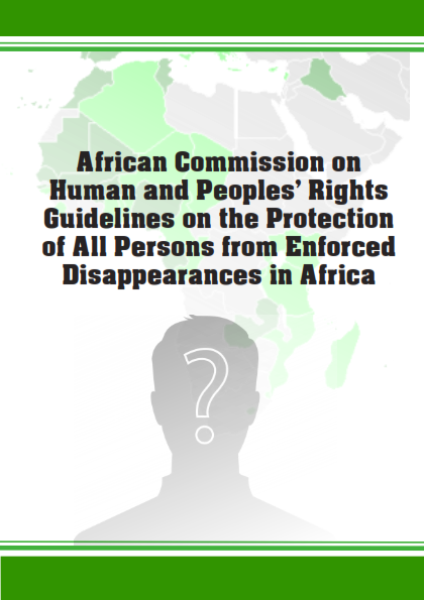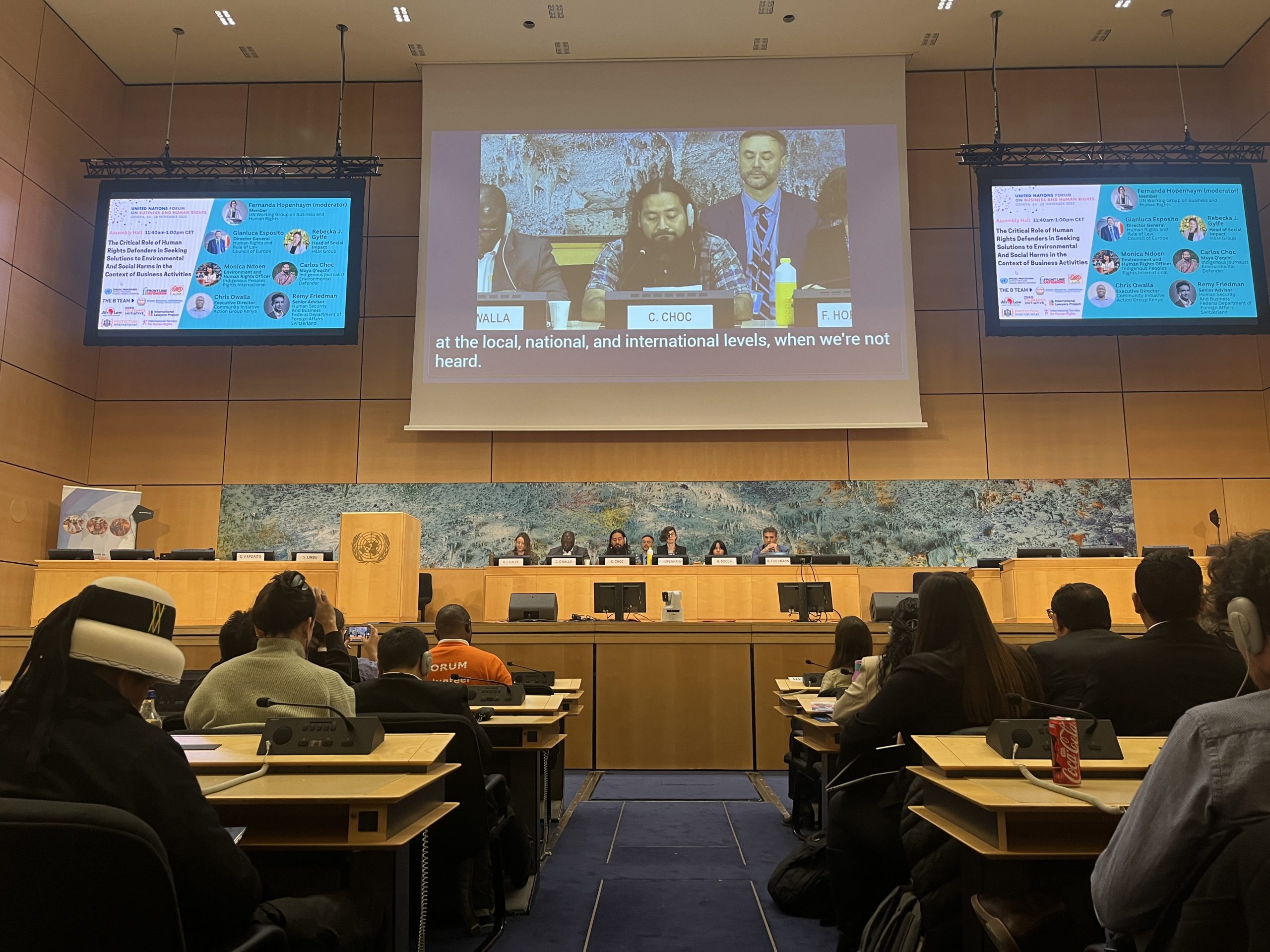On 25 October 2022 the African Commission on Human and Peoples’ Rights (the African Commission) launched Guidelines on the protection of all persons against enforced disappearances in Africa during the 73th ordinary session. It is aimed to provide guidance and support to Africa Union (AU) member States for the effective implementation of their commitments and contributions to the eradication of enforced disappearances throughout the African continent.
“The Guidelines seek to complete, not replace or limit the existing standards and obligations in relevant international treaties and other instruments. The Guidelines aim to strengthen these international treaties and instruments and to encourage member States of the AU to ratify them as a positive measure to prevent enforced disappearances on the continent” introduced Commissioner Idrissa Sow Chairperson of the Working Group on the Death Penalty, Extrajudicial, Summary or Arbitrary Executions and Enforced Disappearances.
The development of the guidelines has been decided in 2018 when the African Commission felt the need to extend the mandate of the Working Group on the Death Penalty to enforced disappearances. Because there was no reliable statistical data on the state of enforced disappearances in addition to the numerous cases of enforced disappearances reported in Africa. The Guidelines were adopted by the African Commission at its 71st Ordinary Session held virtually from 21 April to 13 May 2022. The Guidelines were developed in accordance with Article 45(1)(b) of the African Charter, which mandates the African Commission to formulate norms, principles and rules that can serve as a basis for the adoption of legislation by African governments.
The Guidelines on Enforced Disappearances in Africa are divided into 5 parts:
- highlighting relevant situations in which enforced disappearance takes place in the continent and addressing the specific population affected, the current situation in which enforced disappearance takes place.
- It focuses on general principle and definition of enforced disappearance but also who are considered victims.
- The list of rights violated, or potentially violated, by an enforced disappearance is not exhaustive.
- The Guidelines set out the obligations that the African Union have to follow to fight against enforced disappearance and,
- The need for the State to report on the implementation and disseminating of the Guidelines.
“States must take appropriate measures to search for and to release missing persons without delay. They also have the duties to investigate until the missing person is found” raised Alejandra Vicente, Head of Law at REDRESS.
Commissioner Maya Sahli-Fadel highlighted that States should take into consideration and be aware of the issue of enforced disappearances in Africa through the guidelines. “It was important to be able to guide States on the issue of enforced disappearances. The implementation must take into account all actors including National Human Rights Institutions (NHRIs), civil society organisations, academics, security forces and the magistrate which should be involved in the implementation of the guidelines. Finally, States should also include a point on enforced disappearances in their reports”.
It’s urgent for States, NHRIs and civil society organisations to take ownership of the Guidelines on the protection of all persons from enforced disappearances in Africa to eradicate and prevent enforced disappearances, and to improve the situation of victims in Africa.
Download as PDF




